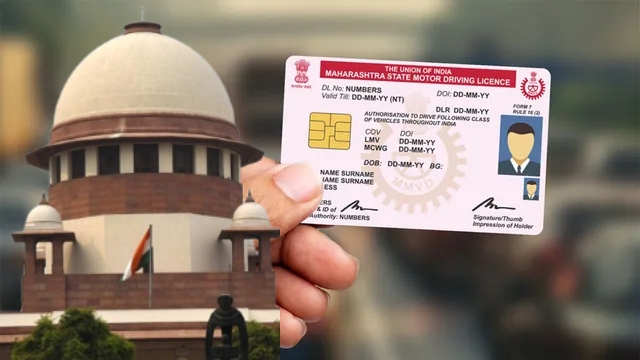
In a significant ruling for commercial vehicle drivers, the Supreme Court on Wednesday held that individuals with a driving license for light motor vehicles (LMVs) are also permitted to operate transport vehicles with an unladen weight of up to 7,500 kg.
This decision, delivered by a 5-judge Constitution bench led by Chief Justice D.Y. Chandrachud, poses a challenge for insurance companies that have been denying claims related to accidents involving these vehicles when driven by individuals lacking proper authorization.
Justice Hrishikesh Roy, who authored the unanimous verdict, emphasized that there is no empirical evidence linking LMV license holders to an increase in road accidents.
He noted, “There is no empirical data that LMV driving licence holders are responsible for rise in road accidents in the country.” This statement highlights the court’s stance that the grievances of LMV license holders, who spend considerable time driving, cannot be dismissed on mere technicalities.
The bench, which included Justices P.S. Narasimha, Pankaj Mithal, and Manoj Misra, reserved its decision on this complex legal matter on August 21.
During the proceedings, Attorney General R. Venkataramani, representing the Centre, informed the court that consultations to amend the Motor Vehicles (MV) Act of 1988 are nearing completion. The Supreme Court urged the Centre to expedite the amendment process.
The key legal question addressed was whether LMV license holders can legally drive transport vehicles under the specified weight limit. This issue has been contentious, leading to disputes over insurance claims following accidents involving transport vehicles operated by drivers with LMV licenses.
Insurance companies have often argued that motor accident claim tribunals (MACTs) and courts have ordered them to pay claims, ignoring their objections regarding the legitimacy of the LMV licenses.
Insurance firms have contended that courts have favored insured individuals in these disputes, complicating their position regarding liability and payment of claims. The ruling could reshape the landscape of commercial vehicle insurance and clarify the rights of LMV license holders, potentially reducing the number of claims denied on technical grounds.
As the legal community awaits the government’s action on amending the MV Act, this decision marks a pivotal moment in the ongoing dialogue about driver licensing and insurance accountability in India.
The Supreme Court’s judgment not only supports drivers seeking clarity in their legal rights but also raises critical questions about insurance practices in the wake of changing interpretations of driving qualifications.




